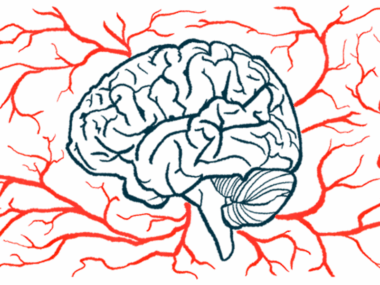Hearing loss may be a big risk factor for Parkinson’s, study says
Researchers recommend early screening for hearing loss, use of hearing aids
Written by |

Hearing loss may be a risk factor for later developing Parkinson’s disease, and the risk may be higher for people with more severe impairment, according to a recent study of U.S. military veterans data.
However, the use of hearing aids within two years after the diagnosis of hearing difficulties was linked to a significantly reduced risk of developing the disease.
“We still have much to learn about how hearing loss contributes to Parkinson’s and how hearing aids might work to lower one’s risk,” Lee Neilson, MD, the study’s first author, an assistant professor at Oregon Health & Science University, and a neurologist for the Veterans Affairs Portland Health Care System, said in a university press release. “Considering there are few downsides to getting screened and fitted for a hearing aid, we would encourage everyone to do it.”
The study, “Hearing Loss, Incident Parkinson Disease, and Treatment With Hearing Aids,” was published in the journal JAMA Neurology.
Parkinson’s is caused by the progressive damage and death of dopaminergic neurons, nerve cells in the brain that are responsible for making a chemical messenger molecule called dopamine. The loss of dopamine signaling ultimately leads to Parkinson’s symptoms.
Declines in sensory function early indicators of nerve degeneration
Declines in sensory function, including a reduced sense of smell, have been shown to precede Parkinson’s symptoms in some patients, and are early indicators of nerve degeneration. This period of unspecific symptoms that appears before the onset of Parkinson’s symptoms is called the prodromal period.
Hearing loss has also been identified as a potential prodromal Parkinson’s symptom, and as a potentially modifiable risk factor for neurodegenerative diseases, including Alzheimer’s.
“However, hearing loss is understudied in the PD [Parkinson’s disease] population,” the researchers wrote. Also, “it is unknown whether the possible association of hearing loss with PD risk is due to hearing loss being an early symptom or playing some causal role.”
To know more, a team of researchers in the U.S. analyzed the electronic medical records of 7.3 million U.S. military veterans who underwent a hearing test from 1999 to 2022.
Nearly 3.6 million were 40 years or older, had not been diagnosed with Parkinson’s disease, and had no missing data, and were thus included in the study. Of these, 20.8% had normal hearing, while the remaining 69.2% had some degree of hearing loss, most commonly mild (30%) or moderate (28.9%).
Participants were followed up for a mean of 7.6 years, corresponding to 27.5 million person-years (PYs), a measure that accounts for the total number of patients and the amount of time each patient spent in the study.
Results showed that across hearing loss groups, the incidence rate for developing Parkinson’s ranged from 3.69 to 11.6 per 10,000 PYs, with the rate for death being 103 to 1,140 per 10,000 PYs. The cumulative rates of Parkinson’s for people with hearing loss was generally greater than for those with normal hearing over the course of follow-up.
“For all groups, the rate of change in PD incidence was most marked over the first 10 years of follow-up before being overtaken by competing risk of death in later time points,” the researchers wrote.
The occurrence of Parkinson’s increased with time, particularly within the first 10 years after a hearing test, and in a manner dependent on the severity of hearing loss.
Any hearing loss associated with 26% higher risk of Parkinson’s at 10 years
Overall, hearing loss of any severity was significantly associated with a 26% higher risk of Parkinson’s at 10 years.
The occurrence of Parkinson’s was then analyzed based on hearing loss and the presence or absence of other prodromal disease symptoms, including constipation, depression, anxiety, erectile or urinary dysfunction, cognitive deficit, sleep disorders, and loss of smell.
Hearing loss was consistently associated with a higher Parkinson’s risk, even in the absence of other prodromal signs, tinnitus (hearing ringing or other sounds without any source), or traumatic brain injury.
Also, prodromal symptoms and traumatic brain injury alone without hearing loss was associated with a higher risk for Parkinson’s, while the same link was not observed for tinnitus alone without hearing loss.
The frequency of the neurodegenerative disease in patients with both hearing loss and prodromal signs was higher than what was expected for either condition alone.
Considering hearing loss is amenable to intervention, the researchers then explored whether administering hearing aids within two years after an initial hearing test could reduce Parkinson’s risk later in life.
They found that using hearing aids was linked to significantly reduced rates of the disease as early as one year after hearing loss detection.
“Given that hearing loss, even that of mild severity, [has an enhancing effect] with known prodromal disorders and leads to a greater-than-additive risk of incident PD, hearing screening should be enforced at the primary care level even in the absence of a patient expressing hearing concerns,” the researchers wrote.




